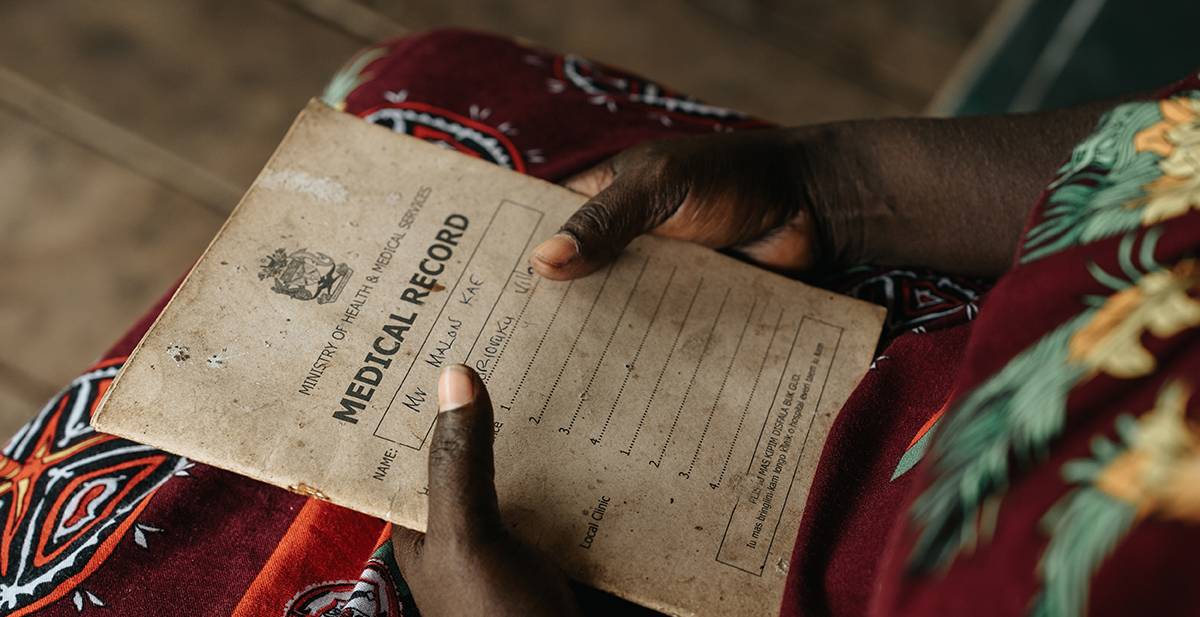You are here
Data for Health Initiative
Approximately half of all deaths in the world go unrecorded without a cause. This means many health policy decisions are based on inadequate — or often, inaccurate — information. The Data for Health Initiative, launched by Bloomberg Philanthropies in 2015, helps low- and middle-income countries improve the quality of data on births, deaths and noncommunicable disease (NCD) risk factors. The goal: equip governments with the information needed to design better-informed public health policies and save lives. Partnering in over 25 countries, the initiative emphasizes country-led programs and collaborations with governments and global organizations.
Learn more
• Overview Fact Sheet
Our Work in Action
Civil Registration and Vital Statistics
Strengthening civil registration and vital statistics (CRVS) systems is a critical focus of the Data for Health Initiative. Since 2015, this work has supported more than 37.7 million new or improved birth and death records across partner countries. Activities include:
- Assessing and modernizing CRVS systems
- Enhancing cause-of-death reporting
- Improving registration practices
- Producing high-quality vital statistics reports
- Using best practices to strengthen data collection across regions and populations
Learn more
- CRVS Fact Sheet
- Revitalizing Zambia’s Vital Statistics: Strengthening Cause-of-Death Data to Save Lives
- Modernizing Medicolegal Death Investigations to Protect Public Health
- Solomon Islands Reduced Child Deaths from Severe Acute Malnutrition
- Technical case study: Morocco
- Technical case study: Zambia
NCD Risk Data and Surveillance
Noncommunicable diseases (NCDs)—including heart disease, cancer, diabetes and chronic lung diseases—account for over 70 percent of all deaths worldwide, with the greatest burden in low- and middle-income countries. To better monitor these risks, mobile phone-based surveys are a cost-effective method to collect data via SMS (text message) or interactive voice response. This innovative approach helps inform countries’ health policies and strengthen global understanding of NCD trends. The CDC Foundation strengthens NCD risk data and surveillance in these areas:
- Supporting countries in using mobile phone technology to collect NCD data
- Developing globally standardized survey protocols
- Evaluating the design and delivery of effective mobile phone surveys
Learn more
Data Impact
The Data Impact (DI) Program empowers countries to expand the use of data to inform public health decision-making. The program provides technical assistance to improve analysis, interpretation, dissemination and use of public health data. Partnering with ministries of health and national public health institutes, the CDC Foundation supports the following DI Program areas:
- Data to Policy (D2P) program: Turning data into actionable policy recommendations
- Public Health Bulletin support: Disseminating information on emerging diseases, outbreaks and surveillance data
- Scientific communications trainings: Guiding participants through the process of developing scientific manuscripts
Learn more
Where We Work
- Bangladesh
- Ecuador
- India
- Morocco
- Papua New Guinea
- Philippines
- Rwanda
- Solomon Islands
- South Africa
- Sri Lanka
- Tanzania
- Thailand
- Uganda
- Zambia
Stories from the Field
Features
Zambia
Data for Health activities include strengthening death registration, training in Medical Certification of Cause of Death (MCCD), modernizing medico-legal death investigations and turning data into actionable policies.
- Investing in People: Strengthening Zambia’s Public Health Data and Policies
- Revitalizing Zambia’s Vital Statistics: Strengthening Cause-of-Death Data to Save Lives
- Turning Data into Policy: Driving Public Health Success in Zambia

Solomon Islands
Roughly 80 percent of deaths in Solomon Islands occur outside the health system and may go unrecorded, leaving a critical gap in public health data. Through the Data for Health Initiative, Solomon Islands is using community-based approaches to bridge this gap and offer lessons for other nations facing similar challenges.
- Shedding Light on Causes of Death in Remote Communities
- Solomon Islands: Transforming Cause-of-Death Reporting to Save Lives
- Data that Saved Lives: How the Solomon Islands Reduced Child Deaths from Severe Acute Malnutrition

Data for Health Partners
- CDC Foundation
- Global Health Advocacy Incubator
- Howard University
- Johns Hopkins Bloomberg School of Public Health
- Pan American Health Organization
- The Pacific Community
- U.S. Centers for Disease Control and Prevention
- United Nations Economic Commission for Africa
- United Nations Economic and Social Commission for Asia and the Pacific
- United Nations High Commissioner for Refugees
- Vital Strategies
- World Health Organization (WHO)
Financial support was provided by the Bloomberg Data for Health Initiative through the CDC Foundation with a grant from Bloomberg Philanthropies.
Photos: Juan Arredondo
- Bloomberg Philanthropies
- CDC’s Global Health Center
- CDC's National Center for Health Statistics
- World Health Organization
- Johns Hopkins Bloomberg School of Public Health
- Vital Strategies
- Global Health Advocacy Incubator
- United Nations Economic Commission for Africa
- United Nations Economic and Social Commission for Asia and the Pacific
